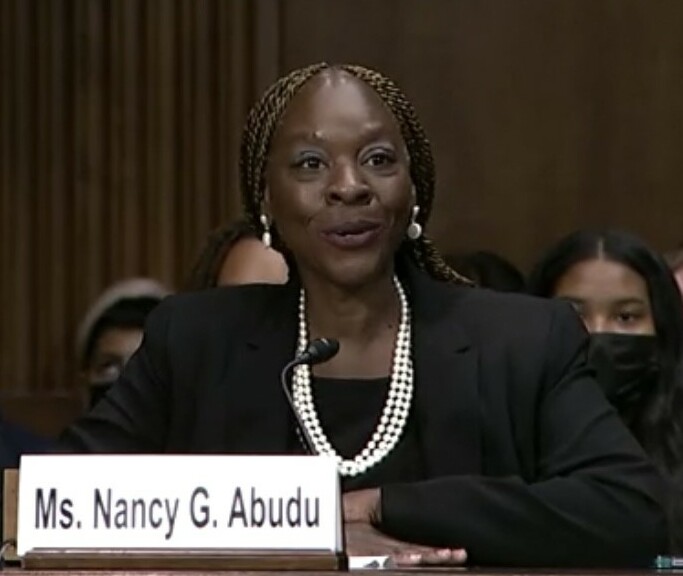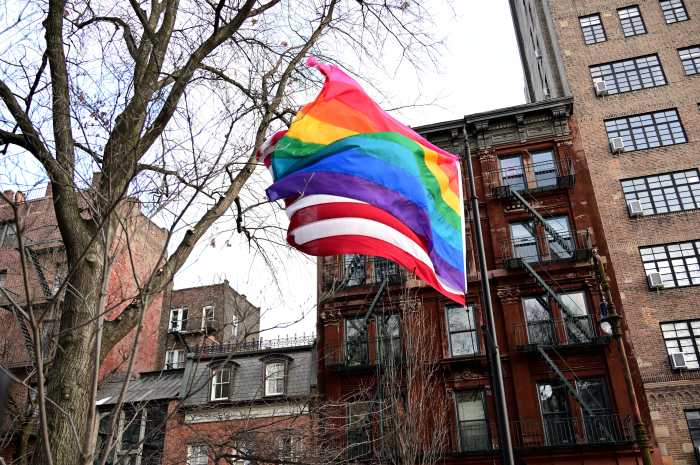A three-judge panel of the US Court of Appeals for the 11th Circuit ruled 2-1 on May 13 to uphold a statewide preliminary injunction against enforcement of Florida’s S.B. 1438, a statute intended to shield minors from exposure to drag shows that the legislature considers to be harmful for them to attend.
The judges in the majority, Robin Rosenbaum and Nancy Abudu, were appointed by President Barack Obama and President Joe Biden. The dissenting judge, Gerald Tjoflat, who was appointed by President Gerald Ford, is on “senior status,” and at 95 years old is one of the oldest and longest serving federal judges.
When preventing minors from attending drag shows suddenly became a big issue for Republicans, the Florida legislature jumped on the bandwagon in 2023, passing what it called the “Protection of Children Act.” The statute makes it a crime to “knowingly admit a child to an adult live performance,” with a child being anybody under age 18.
“Adult live performance” is given a lengthy statutory definition, incorporating the Supreme Court’s test for obscenity with an age-related tweak. It is “any show, exhibition, or other presentation in front of a live audience which, in whole or in part, depicts or simulates nudity, sexual conduct, sexual excitement, or specific sexual activities as those terms are defined in section 847.001, lewd conduct, or the lewd exposure of prosthetic or imitation genitals or breasts when it” essentially meets the Supreme Court’s definition of obscenity, adopted in a 1973 opinion, Miller v. California.
Under the Miller test, in order to find something obscene, and thus not protected under the First Amendment’s freedom of speech, it must be found first to predominantly appeal to a prurient, shameful, or morbid interest in sex, second to be patently offensive to prevailing standards in the adult community [of Florida] as a whole with respect to what is suitable material or conduct for the age of the child present, and three taken as a whole, is without serious literary, artistic, political, or scientific value for the age of the child present.
Hamburger Mary’s, the plaintiff in this case, operated a restaurant and bar that regularly hosted a variety of drag performances before this statute was passed. It presented “family friendly” drag performances during the day on Sundays and patrons were invited to bring their children. These Sunday events were evidently quite lucrative for Hamburger Mary’s. Their other drag shows were intended for an adult audience, and Hamburger Mary’s warned patrons when it considered a show to be “not suitable for children.” Hamburger Mary’s was closed when this case was argued while a move to a new location was under way, but the case was still considered alive because they plan to present drag shows, including “family friendly” shows, at their new location.
Penalties for violating the Protection of Children Act could include suspension or loss of an operating license, fines, and even prison as a misdemeanor offense. In light of the potential penalties, the corporate owner of Hamburger Mary’s, HM Florida-ORL, LLC, feared that its “family” shows might run afoul of the law, even though they were designed to be suitable for minors. They argue that it was difficult to be certain whether state enforcement authorities from the Florida Department of Business and Professional Regulation would find violations, so they suspended the “family friendly” shows at a significant loss of revenue and filed suit in federal court challenging the constitutionality of the law.
Senior US District Judge Gregory Presnell granted Hamburger Mary’s motion for a preliminary injunction in 2023, blocking enforcement of the law against anyone while the case is pending, finding that the plaintiffs were likely to prevail on their First Amendment claim. At the same time, he denied the state’s motion to dismiss the case and refused to narrow his injunction to apply only to enforcement against Hamburger Mary’s. An 11th Circuit panel denied the state’s motion to stay or narrow the injunction, and the US Supreme Court denied a subsequent motion. Meanwhile, the state appealed the preliminary injunction to the 11th Circuit.
Writing for the panel majority, Judge Rosenbaum found that the statute’s inclusion of the term “lewd conduct” without any definition most likely rendered the statute too vague to meet constitutional free speech requirements. She compared it to the “non-definition of obscenity” articulated by Supreme Court Justice Potter Stewart in a 1964 case, where he wrote that he could not define what made something obscene in words, but “I know it when I see it.” The Supreme Court, tired of viewing sexuality-explicit films in the court’s basement screening room in order to decide whether they were obscene, finally rejected this approach in 1973, adopting instead the three-prong test and turning over to juries the task of deciding whether particular books, films and other communicative materials were obscene.
One thing the Supreme Court made clear was that a state law outlawing possession or exhibition of obscene material had to specifically describe, as in the Court’s own Miller test, what counts as obscenity. Many states purported to do this by adapting the Miller test in their obscenity statutes. The purpose of having a specific definition is to avoid “chilling” speech that is not obscene by making it possible for the producers of communicative materials to have a reasonable ability to know in advance whether their products might subject them to liability.
The Florida statute does adopt the main lines of the Miller test, but with a tweak, as noted above, introducing a sliding scale under which the age of the child in question becomes relevant to whether admitting the child to a show might violate the statute. Judge Rosenbaum pointed out that this contributed to the vagueness problem of the law, as what is suitable for a 17-year-old may not be suitable for a 10-year-old or a 5-year-old, and the sliding scale introduces complications for the presenter who needs to determine the ages of children, since children won’t have an age-specific ID until they are old enough to get a driver’s license.
Judge Rosenbaum’s opinion is countered by Judge Tjoflat’s dissent, which argues that the focus on the “lewd conduct” phrase is inappropriate, because the courts have allowed the concept of “lewd conduct” or “lewdness” to be part of many laws dealing with obscenity. Tjoflat argues that Florida’s reaction to this decision may be to rewrite their law using more general terms that will cause the opposite of what the majority opinion intends. He also objects to the statewide injunction, arguing that the trial court should have limited it to Hamburger Mary’s.
This decision is unlikely to be the final word from the courts. The state is likely to seek a reconsideration by the full 11th Circuit bench (referred to as an en banc rehearing). The 11th Circuit has a majority of active judges appointed by Presidents George W. Bush and Donald J. Trump and generally leans conservative on LGBTQ issues. Furthermore, since there has been considerable litigation around the country as states have passed anti-drag laws, this case may end up before the Supreme Court.





































